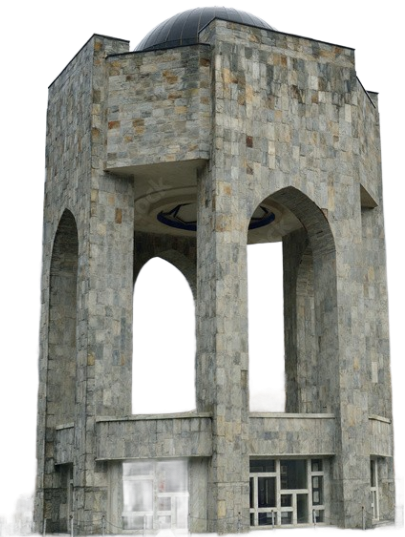
Commitment to Justice and Rule of Law
Commander Massoud believed that justice is the foundation of a stable and peaceful society. His commitment to the rule of law guided his actions as he sought to establish an Afghanistan free from oppression. Throughout his life, Commander Massoud resisted not only foreign invasions but also domestic tyranny, striving to protect the rights of individuals and communities alike. His dedication to justice went beyond mere words—he fought to ensure that laws protected people rather than served as tools for domination.
Dedication to Freedom and Democracy
Commander Massoud envisioned an Afghanistan where every person had the right to freedom and self-expression. He saw democracy as the pathway to a unified, prosperous nation and worked tirelessly to lay the foundation for a government that would represent the Afghan people’s will. Massoud championed the principles of free speech, individual liberties, and civic participation, firmly believing that these rights were essential to achieving peace and progress in Afghanistan.
Unity and Respect for Diversity
Afghanistan is a nation with a rich mosaic of ethnic, cultural, and linguistic diversity. Commander Massoud recognized the strength in this diversity, emphasizing the importance of unity among Afghans. He worked to foster respect and collaboration across various communities, believing that a unified Afghanistan could only be achieved by honoring and integrating its different voices. This vision of national solidarity remains one of his most enduring legacies.
Commitment to Education and Development
Commander Massoud understood that lasting change required empowering individuals through education and economic opportunities. He advocated for education as a means of personal and societal transformation, aiming to cultivate a generation equipped to rebuild Afghanistan. His vision included not just military resistance but social and economic development, believing that a prosperous Afghanistan must be built on the foundations of knowledge and self-sufficiency.
Integrity and Ethical Leadership
Commander Massoud led by example, demonstrating an unwavering commitment to ethical leadership and integrity. He held himself and his allies to high moral standards, valuing honesty, accountability, and responsibility in his role as a leader. This integrity earned him the respect of his people and allies, making him a trusted figure whose influence extended beyond his military prowess.
Courage and Resilience
Commander Massoud’s life was defined by his extraordinary courage and resilience in the face of seemingly insurmountable odds. He led his people through decades of conflict, always maintaining hope for a peaceful future. His bravery, combined with his strategic insight, enabled him to withstand foreign invasions and domestic threats alike. Commander Massoud’s resilience serves as a symbol of endurance and tenacity, inspiring Afghans to persevere in their own struggles for justice and peace.

Vision for Peaceful Coexistence
At his core, Commander Massoud was a man of peace. He fought not out of a desire for conflict but to defend his homeland and safeguard the freedoms of his people. His ultimate goal was to see Afghanistan at peace, governed by leaders who served the interests of the people rather than their own ambitions. Even as he led resistance movements, he sought dialogue and diplomacy, emphasizing the importance of peaceful coexistence both within Afghanistan and with neighboring countries.
Legacy of Peace and Prosperity
Commander Massoud’s vision extended beyond the battlefield; he believed in an Afghanistan where future generations could thrive in peace and dignity. His approach to leadership was deeply rooted in principles that went beyond immediate resistance—he saw the true strength of a nation as being built on the pillars of education, ethical governance, and economic self-reliance. Massoud dedicated himself to these ideals, knowing that a lasting peace would require empowering his people not just militarily but socially and economically. He viewed Afghanistan’s youth as the architects of a brighter future, inspiring them to embrace knowledge, cultivate skills, and lead with integrity.
A Lasting Legacy
The values and principles of Commander Ahmad Shah Massoud continue to resonate today, inspiring those who seek justice, democracy, and unity in Afghanistan. His legacy is preserved through institutions, memorials, and the ongoing efforts of those who share his vision. The Massoud Foundation proudly upholds these ideals, fostering programs that promote education, democratic participation, and community development in Afghanistan.


